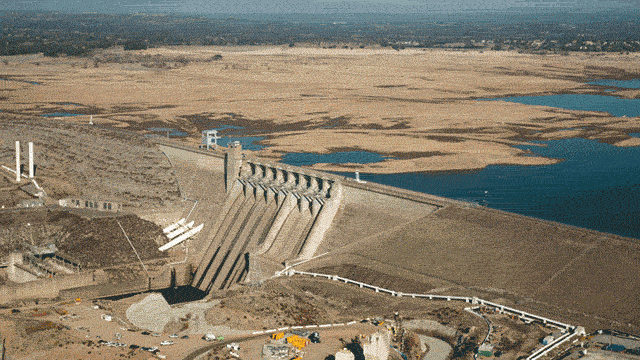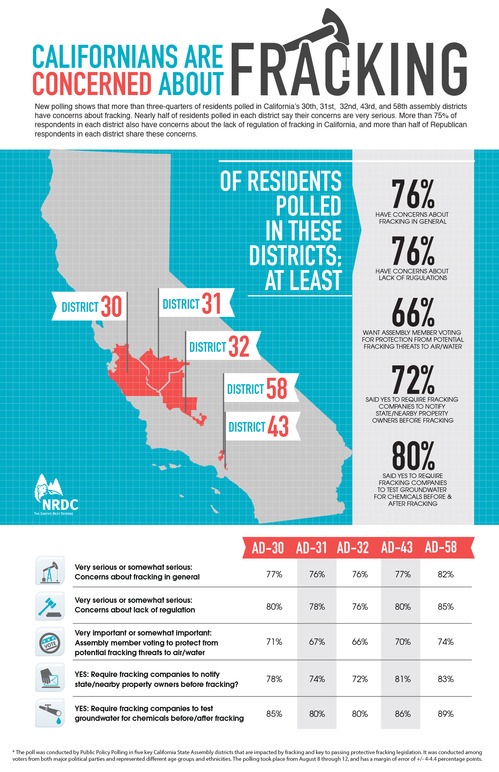
Fracking for oil and gas will not be happening in Los Angeles any time soon after City Council members unanimously voted to ban the practice within city limits. The vote passes the motion to the City Attorney's office where it will be rewritten as a zoning ordinance before returning to City Council for a final vote.
L.A. is now the largest city in the U.S. to refuse the dangerous extraction process. Local bans have become an effective protective measure against fracking, and are in place in numerous jurisdictions worldwide including Vermont, Hawaii, areas of New York State, Quebec, and France among many others.
The Los Angeles ordinance prevents the use of fracking until effective governmental oversight and regulation is in place at the local, state and federal levels.
“I think we can all agree unregulated fracking is crazy,” said Councilman Paul Koretz, co-author of the motion.
California is in the midst of a devastating drought, raising concerns over access to fresh water supplies. Fracking uses approximately 5 million gallons of water per frack job.
According to the Center for Biological Diversity, there are still 9 Californian counties where fracking is in use, including Colusa, Glenn, Kern, Monterey, Sacramento, Santa Barbara, Sutter, Kings and Ventura.
“fracking routinely employs numerous toxic chemicals, including methanol, benzene, naphthalene and trimethylbenzene. It can also expose people to harm from lead, arsenic and radioactivity that are brought back to the surface with fracking flowback fluid. About 25 percent of fracking chemicals could cause cancer, according to scientists with the Endocrine Disruption Exchange.”
Flowback fluid or produced water, the toxic wastewater resulting from fracking, is so highly contaminated it is almost always permanently removed from the hydrological cycle and disposed of in deep injection wells. There is increasing evidence that these chemicals are migrating into sources of drinking water.
“We’re also turning millions and millions of gallons of clean water into toxic waste,” Koretz told council members. “We’re seeing it up close in our neighborhoods.”
California regulators at the Department of Conservation’s Division of Oil, Gas and Geothermal Resources does not monitor or regulate fracking in the state or what chemicals fracking companies use in the process. The administration doesn’t even require companies to obtain fracking permits before commencing operations.
This lack of regulation “does not meet any test of common sense or public safety,” said Councilman Mike Bonin, another of the motion’s co-authors.
Dan Jacobson, legislative director for Environment California, hopes the state will follow L.A.’s lead.
“Fracking is a dirty and dangerous form of oil and gas drilling,” he said. “Governor Brown should follow the lead of Los Angeles, the state’s largest city, and protect our health and environment by putting the brakes on fracking statewide.”
According to an Environment California report there are more than 1,000 documented cases of water contamination from fracking operations.
“Once a fracking boom starts, the result is a wave of damages to the state’s environment and public health,” Jacobson said. “Across the country, fracking is contaminating drinking water, making nearby families sick with air pollution, and turning forest acres into industrial zones.”
“We applaud the City Council for their leadership in the national fight to ban fracking,” he said. “Now the rest of our elected officials need to move to ban fracking.”
In August 2013, the Natural Resources Defense Council released the results of a poll showing widespread concern about fracking in California.
3 WAYS TO SHOW YOUR SUPPORT
- Log in to post comments














